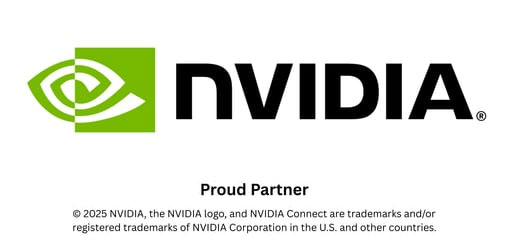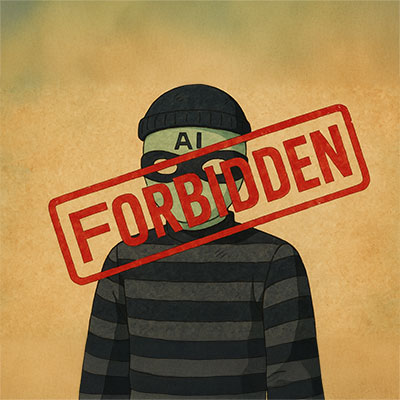In Europe, we like to believe we lead in tech and that our rules and values define the digital ecosystem. But the reality is more sobering. We’ve outsourced much of our digital infrastructure to American platforms. Over 90 per cent of companies in countries such as Iceland, Norway, Ireland, Finland, Sweden, and even 94 per cent in the UK and 80 per cent in France, rely on US cloud and digital infrastructure. euronews
With the US and China in a fierce competition and the possibility of AI supremacy shifting to China, Europe faces a stark crossroads, should that happen: Adapt to a new set of external rules or watch the digital ambitions wither.
A Digital World Shaped by Others
Let’s be blunt. Recent data shows that between 80% and 94% of European tech companies rely on US infrastructure. In the UK, it’s 94%, and in France, 80%. Even the Spanish banking and energy sectors are 100% dependent. Also, 69% of Europe’s cloud market is held by US firms, with only 13% domestic share. This isn’t nuance, it’s dependence.
This dependency means European business, governance, and infrastructure are subject to US rules, legalities, and political ripples (CLOUD Act, FISC, export controls). Even pro-sovereignty strategies like Gaia‑X or EuroStack remain embryonic. If that dynamic doesn’t change, our fate is tied forever to US strategic interests.

China Isn't Waiting - And That Matters
Meanwhile, Beijing is building its own AI ecosystem at scale. The “AI Plus” initiative aims to embed AI into over 70% of daily life and industry by 2027, 90% by 2030, and achieve an “intelligent society” by 2035. If China hits those targets, AI becomes infrastructure, like electricity or mobile telecom. Europe won’t need to “switch”, Chinese standards could simply become the default in emerging markets.
China’s industrial policy isn’t subtle. The state is funding compute, talent, model development, talent pipelines, chip autonomy and open-source platforms. The goal: national AI independence and global governance influence. EU leaders cannot ignore this, lest the global AI ecosystem evolve without us.
What Europe Loses by Staying Dependent

No Influence, No Leverage
We become neither primary customers nor strategic partners. We remain price-takers, reliant on what US firms choose to offer, and under terms that may shift overnight.Irrelevance in Standards
If China dominates the next wave of smart infrastructure or AI governance, global standards will likely follow, potentially diverging from European values or regulatory expectations.
3. Missed Innovation Opportunities
European firms may fall behind, not because they lack talent, but because they rely on US platforms that may prioritise other markets or strategies.
4. Entrapped by U.S. Policy Swing
Political winds in Washington change, tariffs, sanctions, and privacy rules, yet our defaults stay locked to their stack. At best, we adapt reactively; at worst, our digital strategy is held hostage.
A recent Reuters analysis reminds us that US economic power is already weaponised from sanctions to tech restrictions. Europe’s reliance on tech, energy and finance makes it vulnerable. Digital sovereignty isn’t a luxury; it’s a strategic necessity.
Real Digital Autonomy, Instead?
1. Commit to Sovereignty with Substantial Investment
Europe’s tech must offer not slogans, but stakes: National infrastructure, research, trade procurement preference, cloud farms, and orbital compute.
2. Align Innovation with Regulation
Rules like the AI Act are necessary, but they must support local competitiveness. Regulatory pathways need to be accompanied by incentives for European providers to scale.
3. Define Domains Where Europe Can Outcompete
Europe founded GDPR, now investors, firms and public services can lead in applied, ethical, privacy-first AI, in areas where values matter and trust builds competitive advantage.
4. Communicate the Real Risk
Leaders and boards must grasp this isn’t about “anti-China” or “anti-US”, it’s about avoiding permanent digital serfdom. Our dependency isn’t just inconvenient, it’s a strategic surrender.
Choice Matters
Europe’s tech future isn’t decided in the boardrooms of Washington or Beijing. It will be defined by whether we’re content to stay customers (and hence, perpetual losers), or if we’re willing to do the hard work of building alternatives, even when it’s slow, messy, and never as easy as picking up the phone and calling a US supplier.
True sovereignty isn’t about rejecting others. It’s about having options, leverage and the ability to walk your own path, even if everyone else is sprinting in a different direction. The world isn’t waiting for us to catch up. But it’s also not closing the door to those who choose to lead on their own terms.
Victor A. Lausas
Chief Executive Officer
Subscribe to North Atlantic’s email newsletter and get your free copy of my eBook,
Artificial Intelligence Made Unlocked. 👉 https://www.northatlantic.fi/contact/
Discover Europe’s best free AI education platform, NORAI Connect, start learning AI or level up your skills with free AI courses and future-proof your AI knowledge. 👉 https://www.norai.fi/






